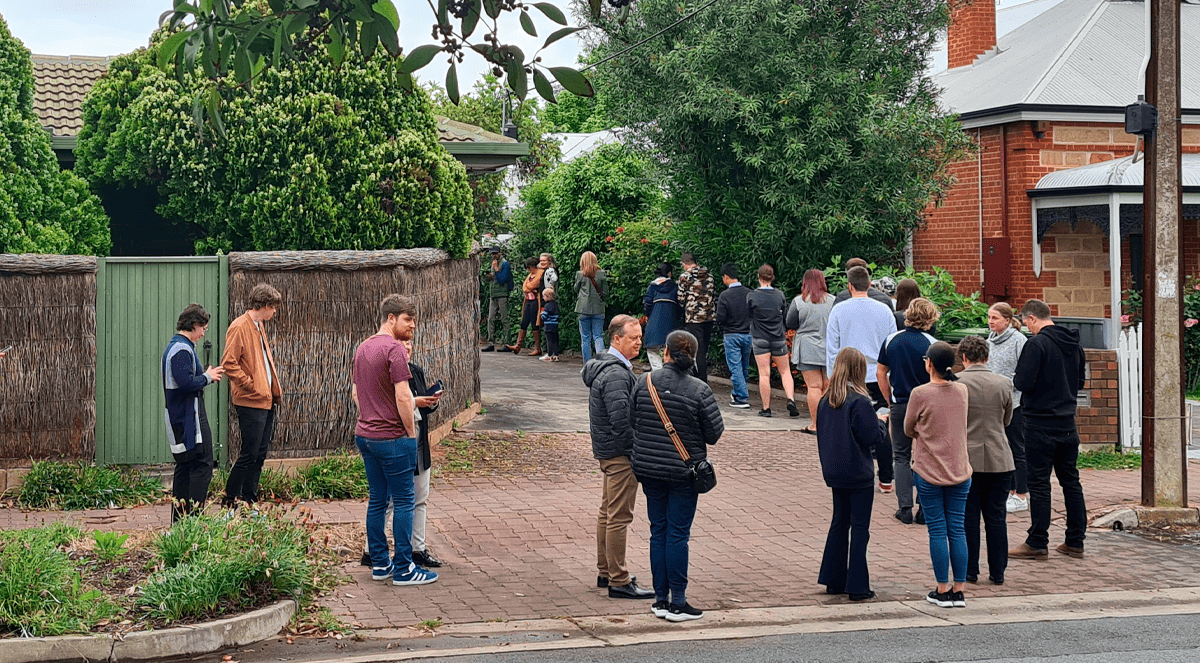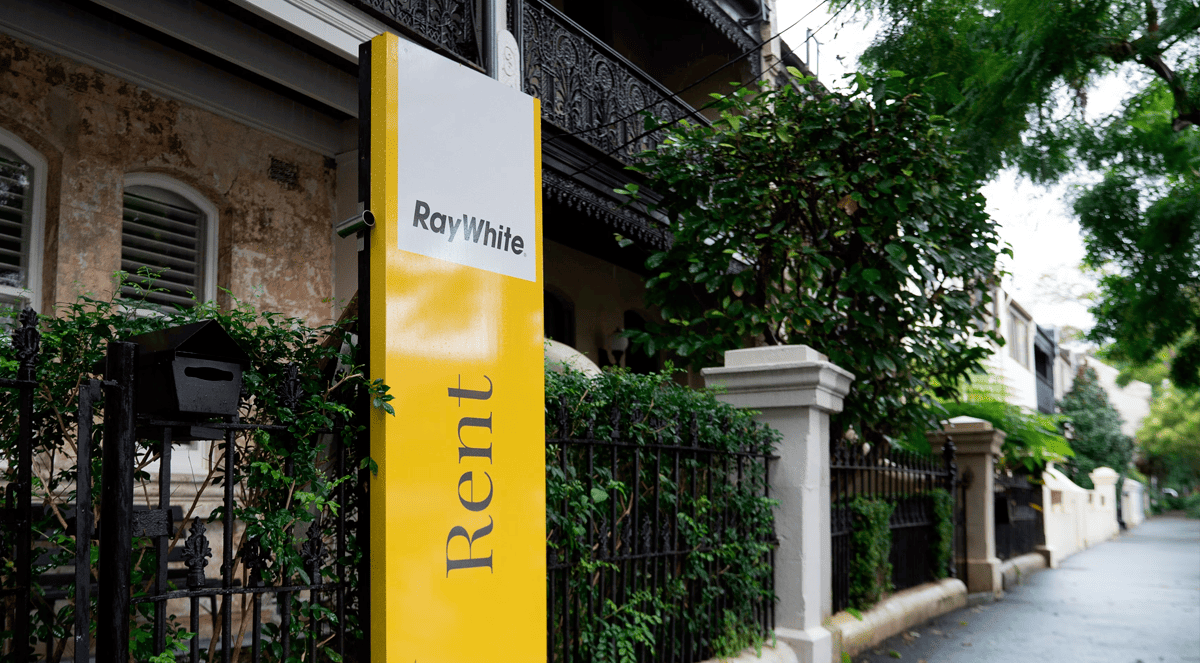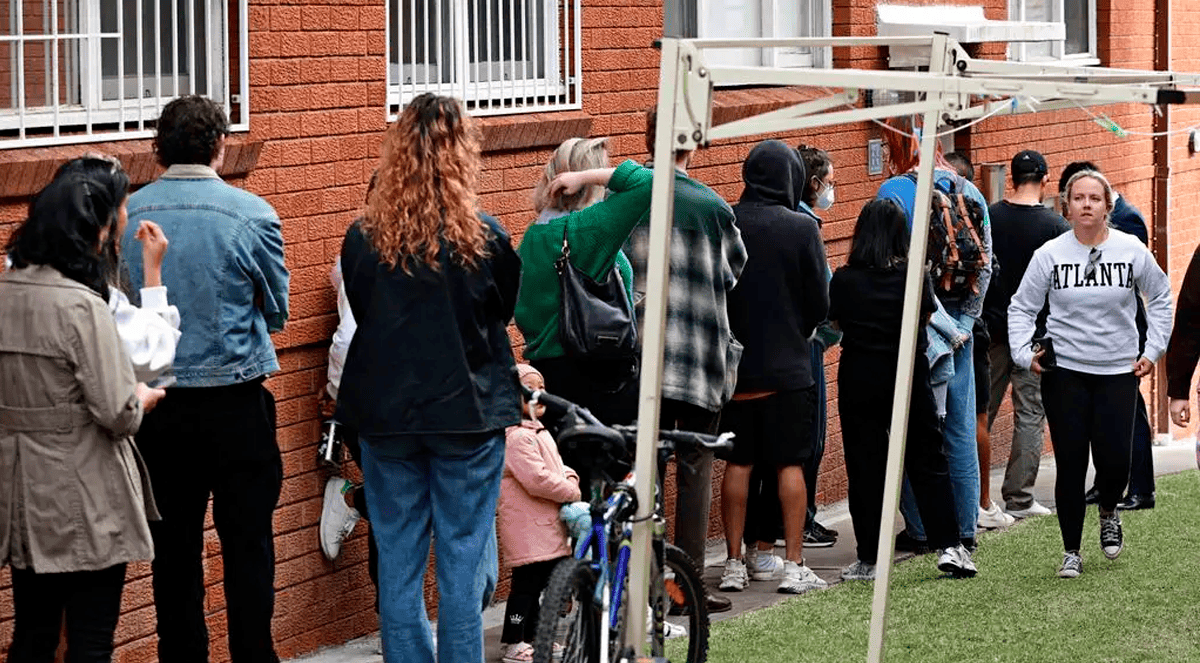Features > Property News & Insights > Market updates
BCA urges $10B fund and stamp duty reform to tackle the housing crisis
.png)
Image by Wolter Peeters
KEY POINTS
- The Business Council of Australia proposes a $10 billion fund to incentivise faster housing delivery by states and territories
- The BCA also advocates for abolishing state stamp or transfer duties on residential property
- Instead of blaming population growth, the BCA points to smaller household sizes as a factor in the housing crisis
The nation’s peak big business group, the Business Council of Australia (BCA), has released a major new report on housing, saying it believes it has the answers to build the homes Australia needs.
The report, called “It’s time to say yes to housing,” contains 29 recommendations that the BCA says would help the Albanese government meet its target of building 1.2 million new homes in Australia by mid-2029.
The details
The Business Council of Australia says that without reasonably priced and suitable housing, Australia’s economic growth will be limited, labour mobility will be curtailed, and the nation’s future prosperity will be put at risk.
It says that while there has been a renewed focus on increasing the supply of housing and some action from both state and federal governments, “housing remains an acute challenge across Australia.”
Its report contains a stark infographic to summarise the problem:
The BCA says it backs the Albanese government’s ambition to build 1.2 million homes over the next five years, but it says a lot needs to be done to turn things around, as home construction in Australia is currently running 64,000 homes a year behind target.
It’s made 29 recommendations to fix the problem, which can be roughly divided into the following areas:
- Upzoning of land and fixing zoning systems.
- Efficient project approval processes.
- Infrastructure that supports housing supply.
- Fixing taxes that impact supply and mobility.
- Addressing labour and materials shortages.
- Tackling criminal behaviour on building sites and building our skills base.
To directly tackle the first three points, the BCA is calling for the establishment of a federally-funded $10 billion national reform fund for housing, which would make payments to the states and territories in return for streamlining complicated planning systems in a bid to bring housing developments on-line faster.
The BCA’s CEO, Bran Black, says the fund “is modelled on an approach that was taken across the country in the late '90s and early 2000s when the federal government incentivised states to undertake important productivity-enhancing reforms in the competition space.”
He says a $5 billion investment by the Federal government at the time now delivers a $60 billion uplift to Australia’s GDP each year.
“What we're saying here is that we've got a whole series of initiatives that we need to try and deliver, steps that we can take around zoning, approvals, and so forth,” he says.
“If we can incentivise states to help undertake some of these important measures, then we should expect to see not only housing supply improved, but productivity uplift as well.”
Stamp duty
A key reform the BCA wants to see is the phasing out of state-based stamp or transfer duty on residential property, replacing it with an ongoing land use tax.
“Look, it's a hard reform,” Bran Black admits, “but what is absolutely clear is that stamp duty is an inefficient tax.
“We know that if we can broadly lead to a replacement of stamp duty with land tax, we will see more mobility in the economy.
“So downsizers…parents who have kids that have moved out of home, they'll be in a position to think to themselves, “You know what? I could buy something a little bit smaller, and I won't be slugged with that huge upfront cost.
“That is a good thing because it means that that large home that they've previously occupied can be freed up for a young family,” Mr Black says.
Building industry watchdog
Following recent allegations that the big CFMEU construction union has been infiltrated by underworld figures and has been holding building firms to ransom with standover tactics, the BCA says there needs to be an urgent judicial inquiry into the criminal behaviour that pervades elements of the building industry
While CFMEU members largely work on heavily unionised worksites, constructing big government infrastructure projects or skyscrapers, there’s plenty of evidence their influence is being felt by smaller building firms working in residential construction.
The BCA’s recommendations also include a call for the Federal Government to re-establish a specialist building industry workplace conduct regulator, with powers and penalties sufficient to deal with corrupt and criminal behaviour.
However, a re-establishment of bodies similar to the Howard and Abbott-era Australian Building and Construction Commission, is unlikely under a Federal Labor government.
Migration
As a staunch supporter of a large skilled migration program, the BCA is cautious when it comes to blaming fast population growth from overseas migration for exacerbating the current housing crisis.
“While there have been significant swings in net overseas migration due to the COVID border shutdown and subsequent spike in the return of migrants, the average over that full period is still commensurate with historical migration levels,” the BCA’s report says.
It also claims that international student numbers (which comprise about half the temporary migration program) in 2023 were up by less than four per cent compared to 2019.
However, the BCA doesn’t address the problem the federal government recently identified, that fewer temporary migrants are leaving Australia than expected, leading to a blowout in international student numbers and net overseas migration.
I wrote about that recently here.
Instead, the BCA concentrates on a demographic trend that has seen the average number of people occupying each home in Australia falling – meaning that more homes are needed to house the same number of people.
“This drives housing demand, even if the population was held at a constant,” the BCA says.
It’s an argument that’s likely to be viewed with some scepticism by large sections of the Australian population, who see a clear link between record net overseas migration after borders reopened after the Covid pandemic and soaring rents and dwelling prices.
Stay Up to Date
with the Latest Australian Property News, Insights & Education.




.png?width=292&height=292&name=Copy%20Link%20(1).png)
 SIGN UP FOR FREE NEWSLETTER
SIGN UP FOR FREE NEWSLETTER





%20Scott%20Kuru%20DPU%20141.jpg?width=1920&height=1080&name=The%20Senate%20Just%20Exposed%20Australias%20Biggest%20$80%20Billion%20Housing%20Fraud%20(Inquiry%20Launched)%20Scott%20Kuru%20DPU%20141.jpg)





%20Scott%20Kuru%20DPU136.jpg?width=1920&height=1080&name=Aussies%20Just%20Got%20Hit%20With%20Double%20Taxes%20on%20Everything%20(This%20Has%20Gone%20Too%20Far)%20Scott%20Kuru%20DPU136.jpg)


%20Scott%20Kuru%20DPU%20133.jpg?width=1920&height=1080&name=JUST%20IN%20Something%20Major%20Just%20Flipped%20Australia%E2%80%99s%20Property%20Market%20for%202026%20(No%20One%20Saw%20This%20Coming)%20Scott%20Kuru%20DPU%20133.jpg)


.jpg?width=1920&height=1080&name=Rental%20Prices%20At%20Record%20Highs%20And%20Vacancy%20Rates%20At%20All%20Time%20Lows%20(New%20Data%20Reveals).jpg)
%20%20DPU%20EP%2014.jpg?width=1920&height=1080&name=Investors%20Shutting%20Out%20First%20Home%20Buyers%20(Investors%20At%20Record%20Highs)%20%20DPU%20EP%2014.jpg)

.jpg?width=1920&height=1080&name=Darwins%20Property%20Market%20Boom%20or%20Dangerous%20Gamble%20(REVEALED).jpg)

.jpg?width=1920&height=1080&name=The%20RBA%E2%80%99s%20Rate%20Cut%20Could%20Explode%20House%20Prices%20(Here%E2%80%99s%20Why).jpg)








.jpg?width=1920&height=1080&name=Warning%2c%20You%20Might%20Be%20Facing%20Higher%20Taxes%20Soon%20(1).jpg)




.png?width=1920&height=1080&name=Rate%20Drops%20Signal%20BIGGEST%20Property%20Boom%20in%20DECADES%20(1).png)

.jpg?width=1920&height=1080&name=Labor%20vs%20Liberal%20These%20Housing%20Policies%20Could%20Change%20the%20Property%20Market%20Forever%20(1).jpg)
.jpg?width=1920&height=1080&name=QLD%20Slashes%20Stamp%20Duty%20Big%20News%20for%20Investors%20%26%20Home%20Buyers%20(1).jpg)
.jpg?width=1920&height=1080&name=Trump%20Just%20Slapped%20Tariffs%20%E2%80%93%20Here%E2%80%99s%20What%20It%20Means%20for%20Australia%20(1).jpg)
.jpg?width=1920&height=1080&name=Federal%20Budget%202025%20More%20Debt%2c%20No%20Housing%20%E2%80%93%20Here%E2%80%99s%20What%20You%20Need%20to%20Know%20(1).jpg)
.jpg?width=1920&height=1080&name=Australias%20Housing%20Crisis%20is%20about%20to%20get%20MUCH%20Worse%20(New%20Data%20Warns).jpg)
%20(1).jpg?width=1920&height=1080&name=Australias%20RENTAL%20CRISIS%20Hits%20ROCK%20BOTTOM!%20(2025%20Update)%20(1).jpg)
%20(1).png?width=1920&height=1080&name=Is%20Adelaide%20Still%20a%20Good%20Property%20Investment%20(2025%20UPDATE)%20(1).png)
.jpg?width=1920&height=1080&name=RBA%20Shocks%20with%20Rate%20Cuts!%20What%E2%80%99s%20Next%20for%20Property%20Investors%20(1).jpg)
%20(1).jpg?width=1920&height=1080&name=I%20Predict%20The%20Feb%20Rate%20Cut%20(My%20Price%20Growth%20Prediction)%20(1).jpg)
.png?width=1920&height=1080&name=Why%20Property%20Prices%20Will%20Rise%20in%202025%20Market%20Predictions%20(1).png)
.jpg?width=1920&height=1080&name=Why%20Investors%20Are%20Choosing%20Apartments%20Over%20Houses%202%20(1).jpg)
.jpg?width=1920&height=1080&name=Why%20Rate%20Cuts%20Will%20Trigger%20A%20Property%20Boom%20(1).jpg)
.jpg?width=1920&height=1080&name=Retire%20On%202Million%20With%20One%20Property%20(Using%20SMSF).jpg)
.jpg?width=1920&height=1080&name=4%20Reasons%20Why%20You%20Should%20Invest%20in%20Melbourne%20Now%20(1).jpg)
%20(1).jpg?width=1920&height=1080&name=Old%20Property%20vs%20New%20Property%20(Facts%20and%20Figures%20Revealed)%20(1).jpg)
%20(1).jpg?width=1920&height=1080&name=Will%20The%20New%20QLD%20Govt%20Create%20a%20Property%20Boom%20or%20Bust%20(My%20Prediction)%20(1).jpg)
%20Scott%20Kuru%20(1).jpg?width=1920&height=1080&name=Inflation%20Hits%20Three-Year%20Low%20(Will%20RBA%20Cut%20Rates%20Soon)%20Scott%20Kuru%20(1).jpg)
.jpg?width=1920&height=1080&name=How%20to%20Buy%20Investment%20Property%20Through%20SMSF_%20The%20Ultimate%20Guide%20(1).jpg)
.jpg?width=1920&height=1080&name=Victoria%20Slashes%20Stamp%20Duty%20Melbourne%20Set%20to%20Boom%20Scott%20Kuru%20(1).jpg)
.png?width=1571&height=861&name=Are%20Foreign%20Buyers%20Really%20Driving%20Up%20Australian%20Property%20Prices%20(1).png)
.jpg?width=1920&height=1080&name=The%20Single%20Factor%20That%20Predicts%20Property%20Growth%20Regions%20(1).jpg)
%20Scott%20Kuru%20(1).jpg?width=1920&height=1080&name=My%20Prediction%20On%20Rates%20%26%20Negative%20Gearing%20(Market%20Crash)%20Scott%20Kuru%20(1).jpg)

-1.png?width=1920&height=1080&name=Major%20Banks%20Cut%20Rates%20Will%20RBA%20Follow%20Suit%20(Sept%20Rate%20Update)-1.png)
%20Scott%20Kuru-1.png?width=1920&height=1080&name=Rate%20Cut%20Coming%20What%20New%20Zealands%20Move%20Means%20for%20Australia%20(Sept%20Prediction)%20Scott%20Kuru-1.png)
%20(1).jpg?width=1920&height=1080&name=Buy%20when%20the%20interest%20rates%20are%20high!%20(Why%20you%20must%20buy%20now!)%20(1).jpg)
.jpg?width=1920&height=1080&name=Carms_Revised%20Taxes%20Due%20Aug%209%20YT%20Thumbnail02%20(1).jpg)
.jpg?width=1920&height=1080&name=Carms_Too%20Little%20Too%20Late%20Aug%207%20YT%20Thumbnail01%20(1).jpg)









.jpg?width=1920&height=1080&name=Carms_Rate%20Drop%20In%20July%20Jun%2010%20YT%20Thumbnail02%20(1).jpg)
.jpg?width=1920&height=1080&name=Carms_Own%20a%20Property%20V6%20Jun%205_YT%20Thumbnail%20(1).jpg)









.png?width=1920&height=1080&name=Artboard%201%20(3).png)






.jpg?width=1920&height=1080&name=YT%20thumbnail%20%20(1).jpg)

